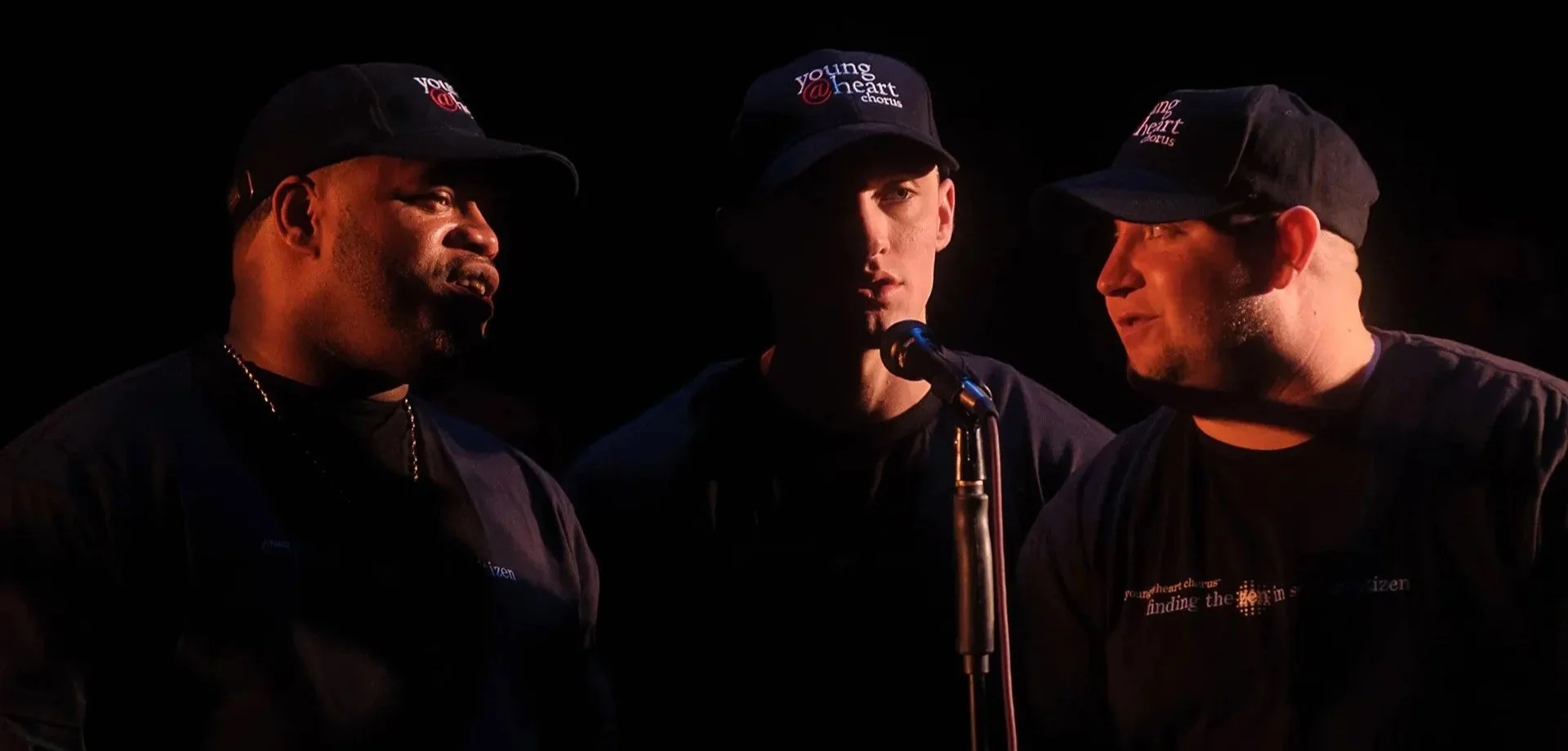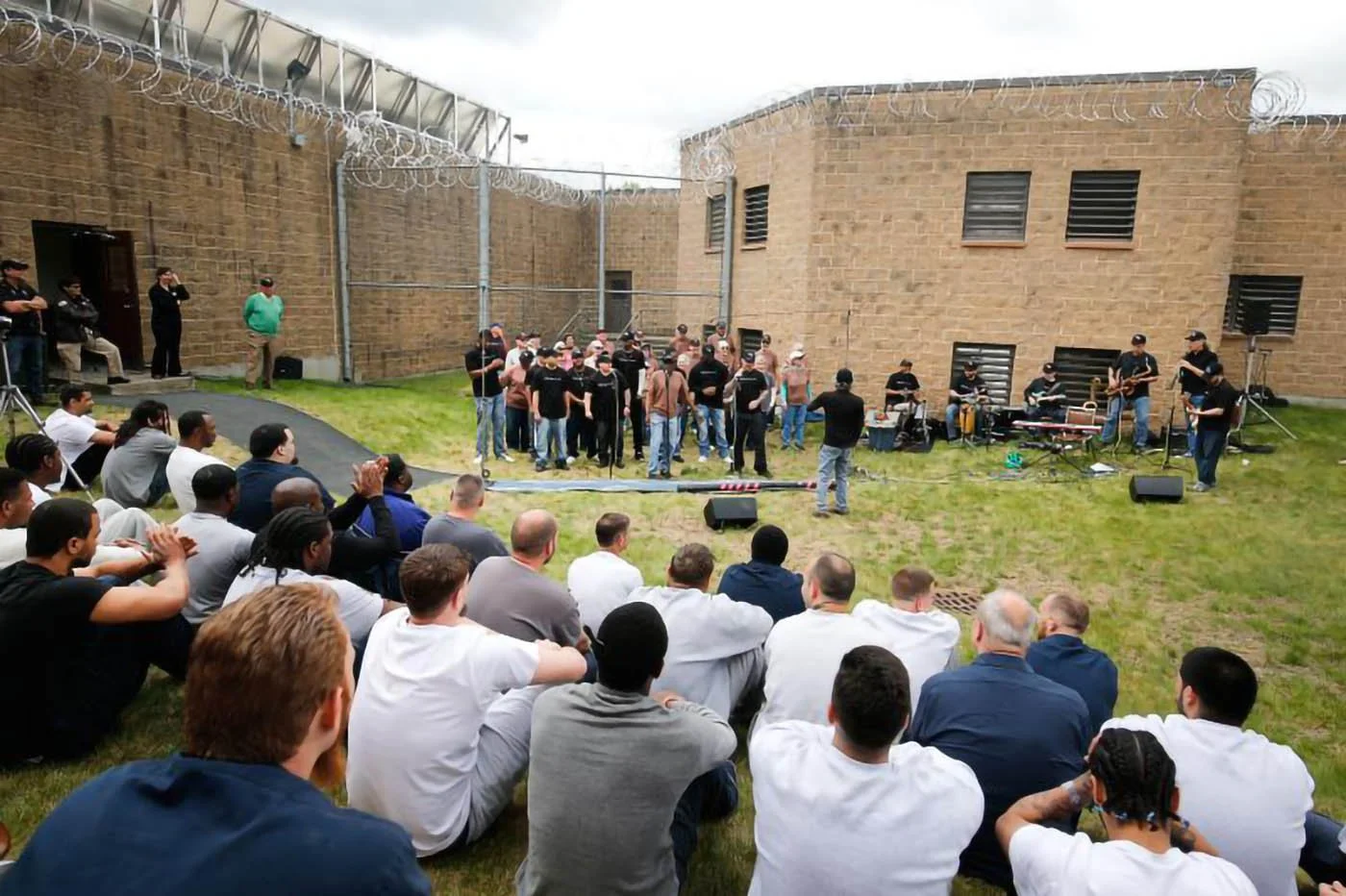CASE STUDY
Young@Heart Chorus
PRISONVISION PROGRAM
Seven Years of Song

Challenge
Most prison arts programs perform for the incarcerated, then leave. We created with them, then stayed.
When Newsweek's David Ansen called Young@Heart's jail performance his favorite cultural movie moment of 2008, writing it "cut so deep, it left me gasping for air," the question became: What would sustained collaboration look like?
How do you build trust across profound divides—elderly mostly-white performers and young mostly-urban incarcerated individuals of color—when institutional programming typically treats participants as beneficiaries rather than artists?
How do you create something that lasts years, not weeks?
This required understanding what most prison programming misses: people don't need to be "helped"—they need to be seen as co-creators, treated as collaborators, and connected to community that doesn't disappear when the grant ends.
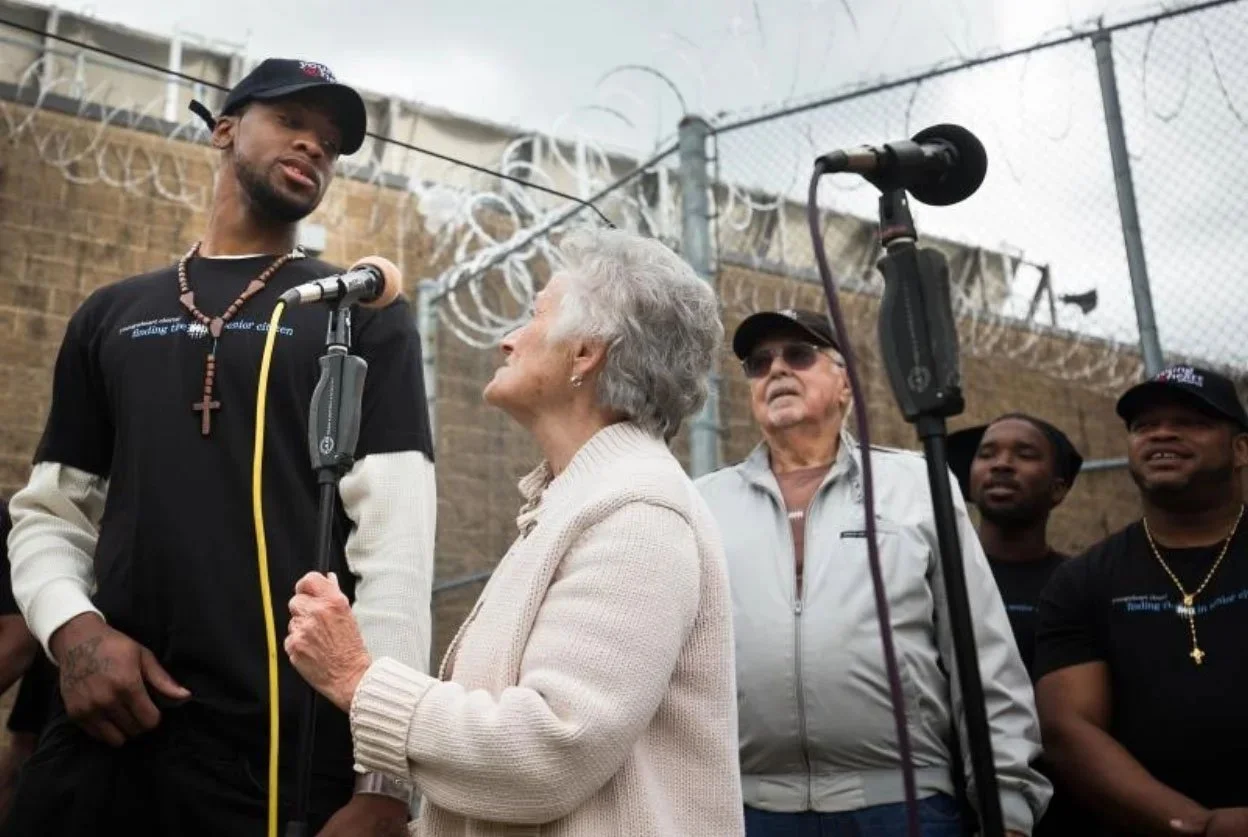
Solutions
Weekly rehearsals at Northampton’s Hampshire County Jail and House of Corrections and Chicopee’s Western Massachusetts Regional Women's Correctional Center brought incarcerated individuals and elderly chorus members together to create music collaboratively, culminating in concerts where they performed as featured vocalists backed by Young@Heart and their stellar 7-piece band.
We met participants where they were—building the program around reinterpreting their favorite songs rather than imposing a predetermined structure.
Working weekly alongside Executive Director Bob Cilman and longtime band member Ken Maiuri, I brought extensive knowledge of hip-hop, R&B, and Latin music gained through years performing, releasing albums, and making beats. When I freestyled with participants, rocked duets with them onstage, and discussed their musical influences, it wasn't an act. It was authentic connection between people who shared cultural language, life experience, and mutual respect.
The singers chose most everything—R&B, hip-hop, rock, bachata, country—learned without sheet music. We showed the 2008 Fox Searchlight documentary about the group, entitled Young@Heart, before beginning, building credibility. Then we created space for honest emotional expression.
Trust across demographic divides requires cultural competency that can't be trained in a workshop. You either have a real relationship to the culture or you don't. They knew the difference immediately.
Over five years, we coordinated 10 concerts through the program—six inside the prisons and four at Northampton's Academy of Music Theatre featuring furloughed and post-release participants—with professional production values that demonstrated respect: multi-camera shoots, publicly released music videos, a full sound system run by the chorus' longtime engineer Dan Richardson, and multi-track recordings (two featured on Young@Heart's 2020 live album Miss You).
For the Academy shows, I executed venue contracts, booked photographers and videographers, managed digital files, and serviced images to press. This visual proof strengthened grant applications and demonstrated we took participants seriously as artists worthy of professional production. Alumni continued performing in virtual shows throughout the pandemic.
The message this sent: You're artists we take seriously, to collaborate as equals, produce professionally and present publicly.
And that commitment didn’t end at the gate.
Through persistent relationship building—phone, email, social media, family members—I maintained connections with over 20 alumni post-release. Coordinated transportation. Facilitated continued participation in Young@Heart rehearsals and concerts. Provided VIP comp tickets for friends and family. Put their photo and bio in the program book. Paid them for their time, talent, and treasure. These weren't just organizational connections—they were genuine personal relationships I built, fostered, and sustained. Alumni contacted me when they wanted to stay involved.
At least six alumni—Philip Ragland, Kyonda Eaton, Anthony Rodriguez, Shrese Singletary, Dakota Fogg, and Cynthia Coons—performed post-release as featured vocalists before paying audiences, earning multiple standing ovations.
The deepest sustained impact: Cynthia Coons, who went from, in her own words, "scared and hopeless" upon joining in 2017 to attending rehearsals twice weekly for nine years running—becoming an honorary member of Young@Heart, helping backstage at every concert, and regularly performing onstage.
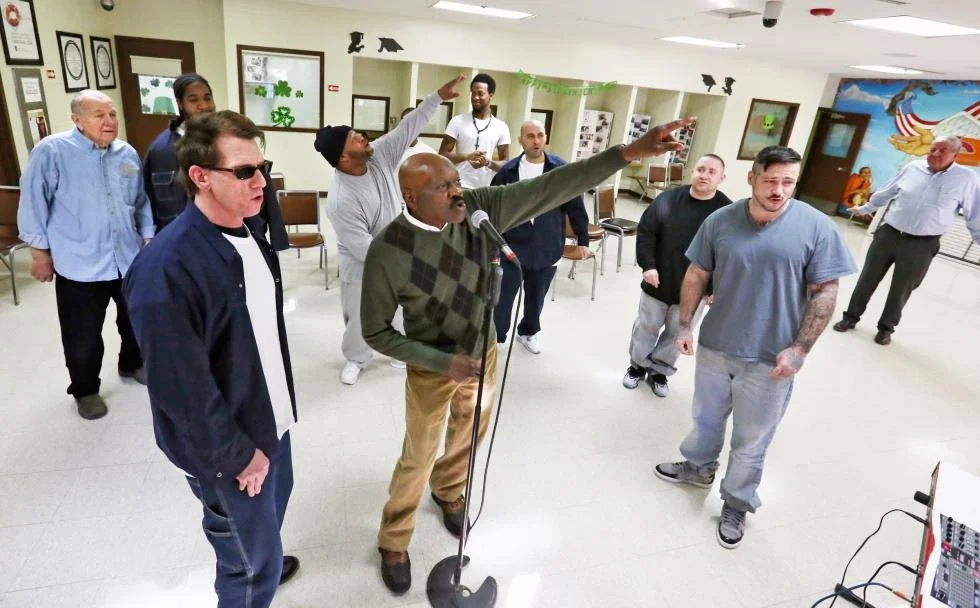
Results
Seven years of weekly programming across two prisons serving 150+ participants.
Over a dozen alumni have rehearsed or performed with Young@Heart post-release—some for single shows, others returning periodically over years.
In Fall 2014, I launched a Kickstarter to finance the project, raising $30,000 from 500+ donors in one month. This was my second campaign for Young@Heart—the first had financed their 2012 album Now. The 2014 campaign attracted The Janey Fund—Young@Heart's largest donor ever—which contributed $350K+ over 12 years and continues with $35,000 annually. I stewarded this relationship throughout.
Combined with grants from Beveridge Foundation, Community Foundation of Western Massachusetts, Grace Jones Richardson Trust, and Davis Foundation, the program secured over $400,000 in sustained funding and attracted coverage from CNN Champions for Change and Huffington Post Japan, among others.
In late 2024, I initiated efforts to revive the program. Leveraging seven years of relationships with prison staff who'd witnessed its impact, I secured a meeting with the Northampton sheriff who green-lit the relaunch. The program returned in Spring 2025 at Northampton with plans to return to Chicopee and expand to Greenfield’s Franklin County Jail and House of Corrections for the first time.
The transferable lessons: Crowdfunding demonstrates community validation that attracts transformational philanthropy far beyond the initial raise. Cultural competency can't be faked. Production values communicate respect more powerfully than any mission statement. Sustained relationships require infrastructure—weekly presence for seven years wasn't luck, it was operational excellence and committed funding. True impact extends beyond programming—nine years of Cynthia attending rehearsals twice weekly since her 2017 release isn't a program outcome, it's family.
This is strategy that flows.

Impact
7 years
Weekly programming and sustained alumni engagement
$400K+
Secured from Kickstarter and five foundation funders
150+
Incarcerated participants served over 7 years
20+
Alumni maintaining connection post-release
9 years
Cynthia attending rehearsals twice weekly
2025
Program relaunched because relationships and model endured
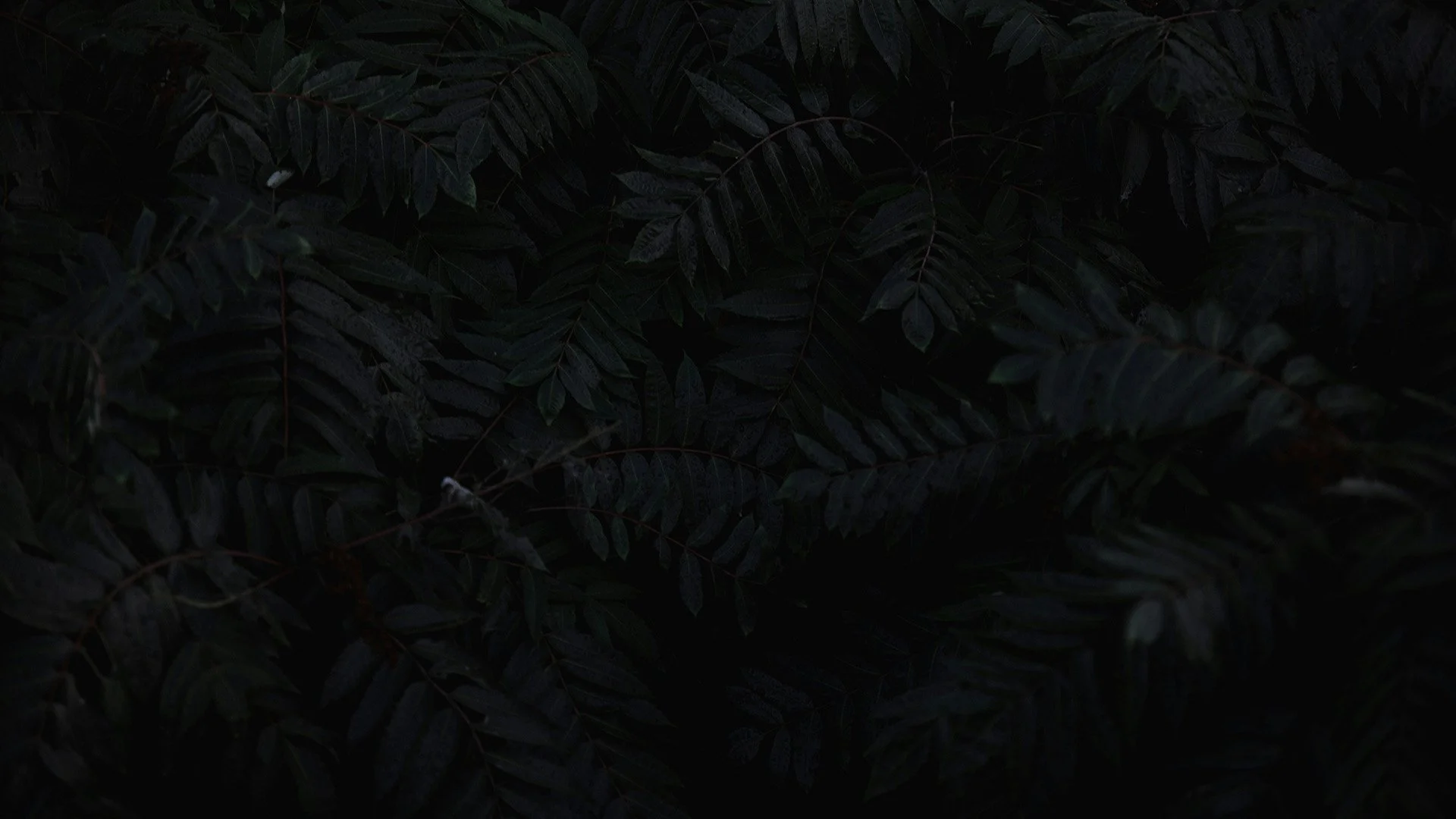
“Young@Heart gave me something I never really had: acceptance—not only with the chorus but with the community. The proof was in the eyes of my 4-year-old daughter Ayla, who sat in the audience when her Daddy performed in front of 800+ people at the Academy of Music.”
Chris Barre, Singer, PrisonVision Alumni

